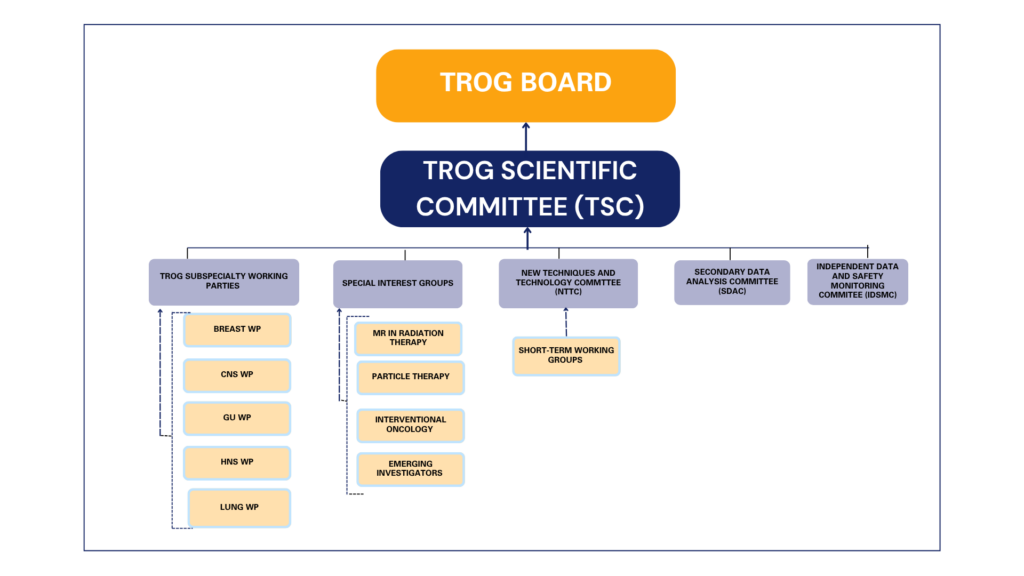The main aim of the TROG Scientific Committee (TSC) is to ensure that TROG’s mission; to conduct world-class research in radiation medicine that leads the global effort to better control and cure cancer and to help improve outcomes for people affected by cancer is met.
TROG aims to conduct high quality, practice changing clinical trials, the TSC supports this through facilitated discussion and endorsement of clinical trial concepts and proposals submitted by our members via the TROG New Proposals Pathway, oversight of active trials and ensuring publication of trial results.
The TSC is composed of the members listed below, who are experts in the fields of radiation oncology, medical oncology, interventional oncology, medical physics, clinical research, quality of life research, health economics, statistics, and trial coordination.
Scientific Committee Chair
Scientific Committee Deputy Chair
Radiation Oncologist
Radiation Oncologist
Radiation Oncologist
Discipline Representative: Medical Physics
Discipline Representative: Interventional Oncology
Statistics
Health Economist
QoL Technical Service
Discipline Representative: Radiation Therapist
Independent Consumer Representative
TROG Research Manager
TROG Head of Operations - Research and Quality Assurance
Secretary
TROG and the TSC work closely with our members to ensure that our trials and new proposals address the key priorities in radiation oncology and that we are horizon scanning for emerging technologies and techniques in radiation medicine.
A number of working parties, committees and special interest groups provide guidance to the TSC including:
TROG Working Parties (WPs): Vital in shaping the research priorities of TROG by identifying gaps in research, developing new research concepts, reviewing the scientific merit of research proposals, and providing expert advice. Our tumour stream Working Parties are comprised of members from many craft groups and disciplines, with a focus on the following cancers:
Under revisions to the TSC Charter approved by the TROG Board in March 2025, each subspecialty working party chairperson is now a member of the TSC.
View the TSC charter here.
Our members’ participation in subspecialty working parties, committees and special interest groups brings new ideas, partnerships, collaborations, guidelines, and policies that support advancing radiation medicine research to improve outcomes for those affected by cancer.
Members are encouraged to share their expertise by joining our committees and working parties. Click the button below to register your interest.

Committe structure: All groups report to the TSC, which reports to the TROG Board. Each working party will have representation from the SDAC, NTTC and each SIG, to provide open communication between the different committees.
Contact the TROG team at committees@trog.com.au for further information.